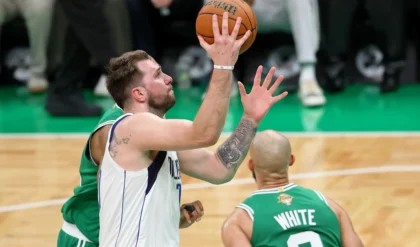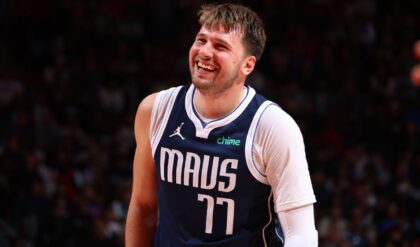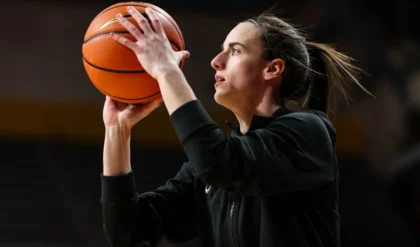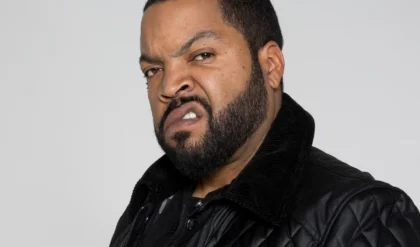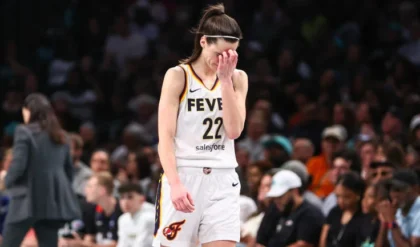Jay Monahan weighed in on Rory McIlroy’s PGA Tour board drama, adding a new chapter to pro golf’s ongoing saga.
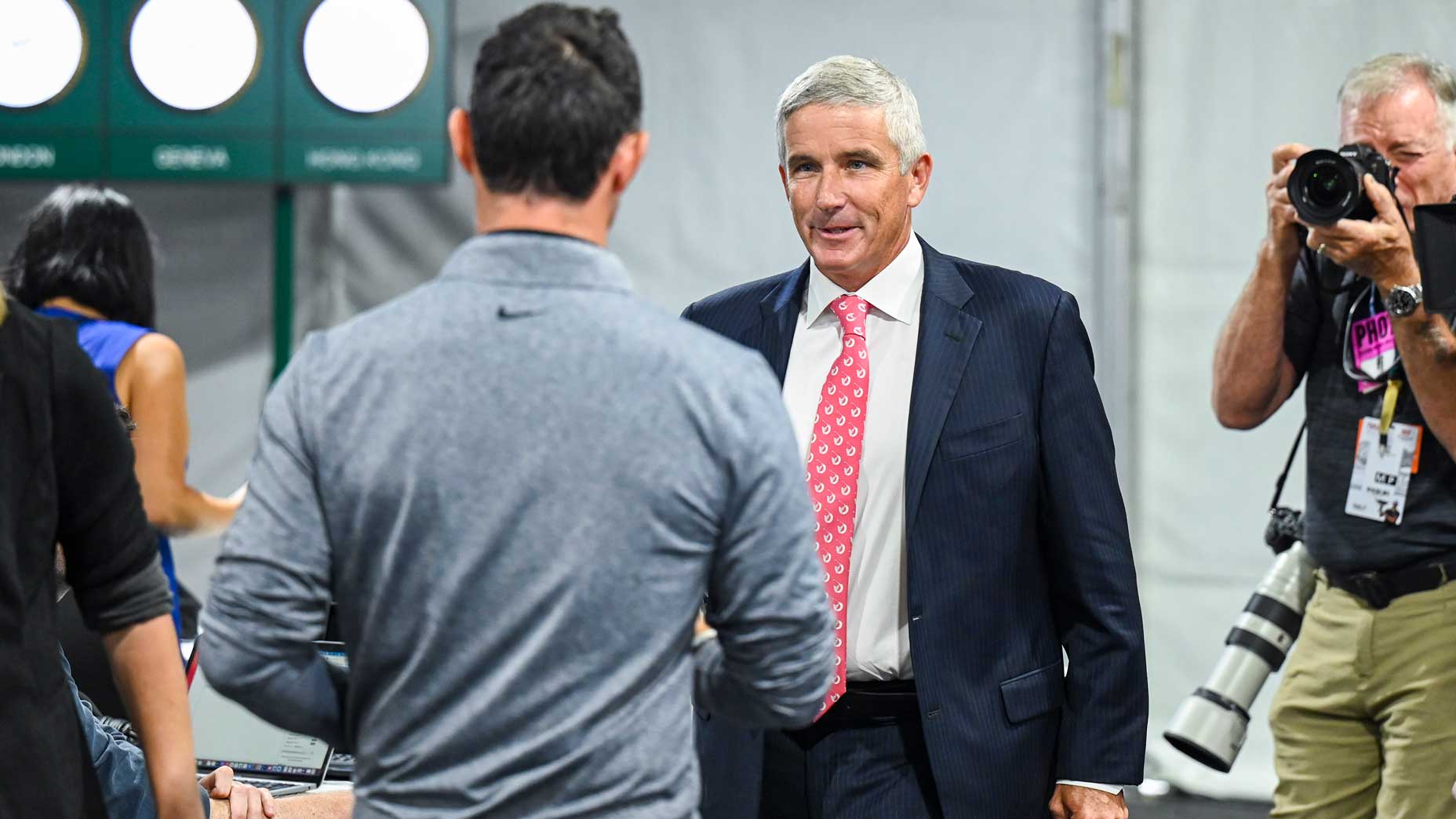
On Wednesday morning, shortly after Rory McIlroy’s press conference at the Wells Fargo Championship, GOLF reached out to the PGA Tour curious if they’d have official comment. Wednesday evening we got one, from commissioner Jay Monahan:
“Today’s news is in no way a commentary on Rory’s important perspective and influence. It’s simply a matter of adherence to our governance process by which a Tour player becomes a Board member,” his statement read.
So what was “today’s news?” How’d it involve Monahan, McIlroy, Tiger Woods, Webb Simpson and Patrick Cantlay? Let’s cruise through what happened.
I. There was a report about Rory
“Today’s news” actually began several weeks ago with a report from the Guardian that Webb Simpson would be stepping aside from the PGA Tour Policy Board and Rory McIlroy would be taking his place. That was intriguing because McIlroy had resigned from the board just a few months before. Now he’d be headed back?
“I think I could be helpful to the process,” he said at the time, lamenting the months gone by without significant progress in negotiations with the Saudi Public Investment Fund. “But only if people want me involved, I guess.”
II. Nothing happened
For a couple of weeks. There was talk of a vote, but the vote didn’t happen. So there was a report and then there was nothing. That seemed odd. It begged the question: Did relevant people in fact not want McIlroy involved?
III. Rory didn’t join the board
Sorry for spoiling the ending here, but on Wednesday morning McIlroy spoke to assembled media following his morning pro-am at Quail Hollow in Charlotte, N.C., and broke the news: No board return for him. (You can read Sean Zak’s full account here.)
McIlroy described it as “uncomfortable” and “complicated” and “messy.” He added that he thought the process “opened up some old wounds and scar tissue from things that have happened before.” He put his hand up to help, he said, but then things got complicated. No dice. It all sounded rather painful.
“So that’s all fine, no hard feelings and we’ll all move on,” he said, seeking a hopeful conclusion.
IV. Webb told his side of the story
The next man at the microphone after McIlroy was, fittingly, Simpson. He lives near Quail Hollow and is playing on a sponsor’s exemption this week and he said the McIlroy maneuver came from a simple place: he just wants to help.
“So his perspective is tremendous to us,” Simpson said. “He’s a global player, always has been, so I just think his views are important, and the other guys feel the same.”
Simpson added that McIlroy didn’t want to cause “any drama or big stories,” but here we are. As for the idea that other board members weren’t comfortable with McIlroy returning? He didn’t see it that way.
“No. I think what we had to work through was, you know, where could his role best be utilized,” Simpson said. “There’s a lot of different roles right now that different players are playing on different committees or us on the policy board or the enterprises board.”
That raised an interesting possibility, then: Even if McIlroy’s not on the policy board, could he serve on one such committee?
V. The rumor mill ran wild
“Rumor mill” probably isn’t fair. There was likely some truth to it all. But various golf media establishments ran with McIlroy’s comments and connected the dots to make the assumption that the policy board triumvirate of Patrick Cantlay, Jordan Spieth and Tiger Woods had been working together to block McIlroy’s appointment. If true, that would be salacious; Spieth replaced McIlroy in the fall after all, and Cantlay and McIlroy have Ryder Cup and policy board beef dating back months, and Woods and McIlroy started a golf league together. It’s a small, entangled world.
It’s especially entangled for McIlroy, a fact that’s seen as both a strength and a weakness for his board candidacy; he’s close with the Fenway Sports Group, which is at the core of the PGA Tour’s new investment group SSG (Strategic Sports Group) and has a relationship with Yasir Al-Rumayyan, the governor of the PIF and the chairman of LIV. Add in the fact that he’s World No. 2 and a global superstar and McIlroy seems like a man who could help find common ground or a man with conflicts of interest, depending who you asked.
6. The commissioner corrected the record
Monahan made it clear that McIlroy’s omission was “simply a matter of adherence to our governance process.” It was telling that he made the statement at all, and perhaps a sign that Monahan knows better than to let McIlroy twist in the wind.
Others familiar with the negotiations confirmed Monahan’s account; there was a procedural flaw in the original plan. Simpson wasn’t permitted to make a conditional resignation naming his successor. That doesn’t mean the other factors didn’t play a role, but McIlroy’s appointment never reached the official voting stage.
“Webb remaining in his position as a member of the Policy Board and PGA Tour Enterprises Board through the end of his term provides the continuity needed at this vital time,” Monahan’s statement continued. “We are making progress in our negotiations with the PIF and are working as a collective — the Player Directors, our Boards and Tour management — to remain open-minded to all avenues that advance the Tour in the best interest of our players, our partners and, most importantly, our fans.”
7. An important committee got named
How’s this for timing? Also on Wednesday, Tiger Woods was the lone player named to the PGA Tour Enterprises’ five-person “transaction subcommittee” that will negotiate with the Saudi PIF; he’ll be joined by Monahan, policy board chairman Joe Gorder, Fenway Sports Group’s John Henry and recent board appointee Joe Ogilvie.
Multiple sources referenced the possibility of McIlroy joining that subcommittee in some capacity despite not being a member of the policy board. That would be a logical compromise, as it would avoid the thorniness of a McIlroy board appointment while still tapping into his perspective and connections. He has made it clear that he feels a deal between golf’s warring factions is the clear best course of action and this would represent a chance to help make that happen.
But which parties want the deal to get done? And within what parameters? As with this entire saga, you should believe the next concrete step when you see it.
